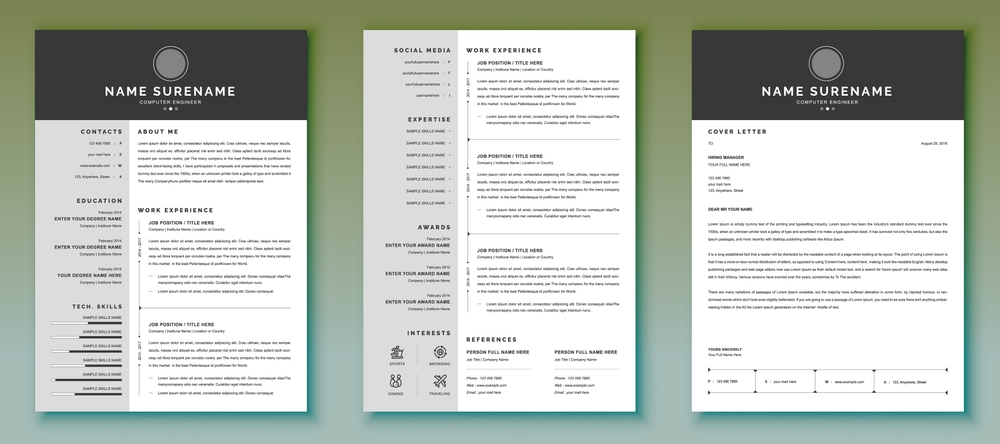As I researched how immigrants are landing high-paying jobs in the UK without a degree, I was amazed by the number of opportunities available. The job market has changed, and now employers care more about skills and real-world experience than formal qualifications. This shift has opened up significant roles for those who can show they have what it takes.
In this article, I’ll explain how immigrants are getting these jobs, highlight industries where a degree isn’t needed, and share simple steps to take if you want to do the same. If you’re thinking about a career change or just starting, you’ll find valuable tips to help you succeed.
Wondering how immigrants are landing high-paying jobs without a degree? Let’s get started!
Read: The Best International Money Transfer Services for New Immigrants in the UK
Why High-Paying Jobs Are Accessible to Immigrants Without Degrees
The UK job market is changing, with more emphasis on practical skills instead of formal degrees. Employers now value fundamental skills and hands-on experience over just having a degree. This change is happening for several reasons:

- Skills-Based Hiring: Companies are increasingly interested in hiring people who can jump into their roles and perform well. Skills like problem-solving, communication, and digital literacy are valued highly, and immigrants who possess these skills are in demand.
- Job Market Changes: Fields like technology, healthcare support, and logistics are expanding, creating many job opportunities where practical skills are more valuable than academic credentials. Companies in these fields are eager to hire skilled workers who can meet their industries’ demands.
- Government Initiatives: The UK has programs that support skilled immigrants, helping them to find work and contribute to the economy. These initiatives aim to make it easier for skilled workers to join and thrive, even without traditional qualifications.
- Technological Advancements: As more industries adopt automation and artificial intelligence, the need for workers with technical skills has grown. These changes often prioritize experience and the ability to adapt to new technologies over formal education.
- Flexibility in Hiring: Many companies now offer apprenticeships, internships, and online training, allowing individuals to gain valuable skills without a degree. This gives immigrants with experience but no formal qualifications a significant advantage.
Top High-Paying Industries That Don’t Require a Degree
Here are some of the top high-paying industries in the UK where immigrants can find jobs without needing a degree. These fields value skills and experience, making them accessible for those with practical abilities:
1. Technology and IT
- Roles: Software developers, data analysts, IT support, cybersecurity specialists, network engineers.
- Skills needed: Programming languages (e.g., Python, Java), data analysis tools, troubleshooting, and cybersecurity practices.
- Pay range:
-
-
- Software Developer: £30,000 – £60,000 per year
- Data Analyst: £26,000 – £50,000 per year
- IT Support Specialist: £22,000 – £35,000 per year
- Cybersecurity Specialist: £40,000 – £70,000 per year
-
- How to get started:
-
-
- Learn programming languages and data tools through online courses (e.g., Coursera, Udemy).
- Build a portfolio to showcase your skills and participate in coding boot camps.
-
2. Trades and Construction
- Roles: Electricians, plumbers, carpenters, construction managers, bricklayers.
- Skills needed: Hands-on technical skills, problem-solving, manual dexterity, knowledge of building codes and safety regulations.
- Pay range:
-
-
- Electrician: £28,000 – £45,000 per year
- Plumber: £25,000 – £40,000 per year
- Carpenter: £22,000 – £35,000 per year
- Construction Manager: £40,000 – £60,000 per year
-
- How to get started:
-
-
- Consider apprenticeships or vocational training programs.
- Gain practical experience by offering services independently or through a company.
-
3. Logistics and Supply Chain
- Roles: Warehouse operative, logistics coordinator, supply chain manager, delivery driver, stock controller.
- Skills needed: Organizational skills, attention to detail, ability to manage inventory, knowledge of logistics software, and good communication.
- Pay range:
-
-
- Warehouse Operative: £19,000 – £28,000 per year
- Logistics Coordinator: £24,000 – £35,000 per year
- Supply Chain Manager: £45,000 – £70,000 per year
- Delivery Driver: £22,000 – £30,000 per year
-
- How to get started:
-
-
- Seek entry-level positions to gain experience in the field.
- Take short courses in logistics or supply chain management to build expertise.
-
4. Healthcare Support
- Roles: Caregiver, medical assistant, dental assistant, health and social care worker, physiotherapy assistant.
- Skills needed: Empathy, communication, time management, and basic healthcare knowledge.
- Pay range:
-
-
- Caregiver: £18,000 – £25,000 per year
- Medical Assistant: £20,000 – £30,000 per year
- Dental Assistant: £20,000 – £28,000 per year
- Health and Social Care Worker: £20,000 – £30,000 per year
- Physiotherapy Assistant: £20,000 – £28,000 per year
-
- How to get started:
-
-
- Look for entry-level care roles or volunteer opportunities to gain experience.
- Consider obtaining certifications in care or healthcare support through accredited courses.
-
5. Sales and Marketing
- Roles: Sales representative, digital marketing specialist, SEO expert, content creator, social media manager.
- Skills needed: Strong communication skills, digital marketing knowledge, content creation, sales strategies, and social media marketing.
- Pay range:
-
-
- Sales Representative: £22,000 – £38,000 per year
- Digital Marketing Specialist: £25,000 – £45,000 per year
- Social Media Manager: £28,000 – £45,000 per year
- SEO Specialist: £28,000 – £50,000 per year
-
- How to get started:
-
-
- Build a personal brand online or gain experience through internships or freelance work.
- Learn digital marketing tools (e.g., Google Analytics, HubSpot, SEMrush) through online courses.
-
These industries offer good pay and career growth without needing a degree, making them accessible to immigrants with the right skills and a desire to learn.
Read: Listicle: 10 Secrets to a Successful Job Hunt in the UK (From Experts)
Essential Skills for High-Paying Jobs Without a Degree
Focusing on critical skills is necessary to land high-paying jobs without a degree. Here are some that can help immigrants stand out:
- Communication and Teamwork: Many high-paying roles require excellent communication and teamwork skills. Being able to work effectively with colleagues and convey ideas is essential.
- Technical Skills: For roles in IT or other technical fields, skills like coding, using digital tools, or managing data are often prioritized over formal education.
- Problem-Solving and Adaptability: Employers value individuals who can think independently and adapt to new situations. Demonstrating your ability to solve problems effectively can make you an attractive candidate.
- Time Management: Many employers look for people who can efficiently handle tasks and meet deadlines. Showing that you can prioritize tasks and manage your time well is a big plus.
- Customer Service Skills: Strong customer service skills can set you apart in roles that involve interacting with clients or customers. Employers value people who can handle client needs and ensure a positive experience.
- Attention to Detail: Many jobs require precision and accuracy, especially in healthcare support or logistics. Highlighting your attention to detail can help you stand out.
- Networking and Relationship Building: Building a solid professional network and maintaining good relationships with colleagues and clients can open doors to new opportunities. Employers value individuals who can connect well with others.
Immigrants can highlight these skills in their resumes and cover letters, showing how their experiences have prepared them for high-paying roles in the UK.
Pathways to Build Skills and Experience
If you don’t have the skills or experience for your target job, here are some ways to gain them:
- On-the-Job Training: Many companies offer training programs for new hires. Look for job postings that mention training opportunities, especially in trades and healthcare support.
- Online Courses and Certifications: Platforms like Coursera, LinkedIn Learning, and Google Certificates offer affordable and flexible courses. Completing relevant certifications can boost your resume and show employers you’re serious about your career.
- Apprenticeships and Trainee Programs: Apprenticeships are common in fields like construction and IT. These programs allow you to earn while you learn, gaining practical skills that can lead to a well-paying job.
- Volunteering and Internships: Volunteering or taking on internships can help you gain experience in a new field. These roles may be temporary or unpaid, but they provide valuable knowledge that can improve your job prospects.
- Personal Projects and Portfolios: Working on individual projects or creating a portfolio can showcase your skills to potential employers. For example, making a portfolio website or GitHub repository for IT roles can demonstrate your abilities without formal experience.
Building these skills and experiences can make land high-paying jobs in the UK without a degree more accessible.
Networking and Job Search Tips
Networking is crucial for success in any job search. Here’s how to effectively connect with others and find job opportunities that suit you.

- Networking: Connect with professionals on LinkedIn, attend local events, or join industry groups to build connections. Networking can help you learn about job openings and meet people who can recommend you for roles.
- Job Boards: Use job sites tailored to the UK market, such as Indeed, Glassdoor, and Reed. These platforms allow you to search for roles that don’t require degrees and apply directly.
- Recruitment Agencies: Some recruitment agencies specialize in placing candidates without formal qualifications. Research agencies that focus on your target industry and contact them.
- Professional Associations: Many industries have professional associations where you can meet people in the field and access job listings. Joining these groups can be a great way to learn more and increase your job prospects.
Networking and using specialized resources can help you find high-paying jobs that fit your skills, even without a degree.
Critical Tips for Job Interviews and Applications
To stand out in interviews, tailor your resume and highlight the most essential skills. Here’s how to prepare for success.

Tailoring Resumes
- Customize your resume for each job, highlighting relevant skills and experiences.
- Focus on key achievements and contributions from past roles.
- Use bullet points for easy readability, and list relevant experiences at the top.
Highlighting Transferable Skills
- Emphasize skills like communication, problem-solving, and project management.
- Show how skills from past roles are relevant to the job you’re seeking.
- Connect each skill to the job description, even in a different field.
Preparing for Interviews
- Research common interview questions and practice your responses.
- Be ready to explain why you’re a strong candidate without a degree.
- Practice responses to questions like “Why should we hire you?” to build confidence.
Read: How to Avoid UK Visa Scams: A Comprehensive Guide
Challenges Immigrants Might Face (and How to Overcome Them)
Though the job market offers many opportunities, immigrants may face challenges. Let’s discuss common obstacles and how to tackle them.
Language Barriers
- Difficulty with English may limit communication in some roles.
- Solution: Enroll in English courses at local centers or online (e.g., Duolingo, Coursera).
Lack of Local Experience
- Some employers prefer candidates with UK-based work experience.
- Solution: Gain local experience through volunteering or internships.
Visa Restrictions
- Work visa limitations may affect job eligibility or work hours.
- Solution: Consult an immigration specialist for legal options and visa compliance guidance.
Credential Recognition
- Foreign qualifications might not be recognized for specific UK roles.
- Solution: Research equivalent certifications or bridging programs to meet local standards.
Success Stories of Immigrants in the UK Without Degrees
Hearing about the successes of others can be encouraging. Here are a few examples of immigrants who found high-paying roles without degrees:
- A Data Analyst from Brazil: This individual arrived in the UK with basic coding skills and a strong interest in data. By taking free online courses on data analysis and building a portfolio, they were able to land a role at a startup within a year. Today, they earn a competitive salary in the tech industry, showcasing how learning specific technical skills can open doors.
- An Electrician from India: Coming to the UK with several years of experience as an electrician, this professional initially struggled with credential recognition. By completing a local certification program, they could meet UK standards. They now run a successful contracting business, providing specialized services and earning a high income through trade skills.
- A Marketing Specialist from Nigeria: With experience in digital marketing, this individual found a job with a UK-based company by demonstrating their expertise in social media and content creation. They built a portfolio that showcased results from past projects, which helped them stand out to employers looking for skilled marketers. Today, they manage campaigns and enjoy a competitive salary without a formal marketing degree.
With the right skills, experience, and determination, immigrants can succeed in the UK job market without a degree. High-paying jobs are increasingly accessible in industries that value practical experience.
Immigrants can build successful careers by focusing on skill-building, targeting the right industries, and overcoming challenges. A degree isn’t the only route to success—start today by learning a new skill, applying for jobs, or expanding your network to seize the opportunity.


1 comment
i’m ready I want work visa Canada